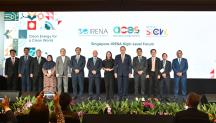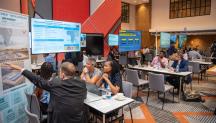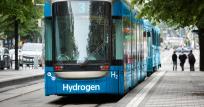
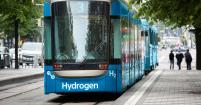
IRENA Members Call for Geopolitical Analysis of the Hydrogen Economy
Newsletter
Clean hydrogen is enjoying unprecedented political and business momentum. Underscoring this point, IRENA Director-General Francesco La Camera highlighted that while only five countries had announced hydrogen strategies at the end of 2019, a year on nearly 20 countries have done so with 10 more at the advanced stages of planning.
Major global businesses are also pursuing ambitious hydrogen strategies. Oil majors are revealing plans to make significant investments in hydrogen in the coming decade as the fuel is positioned as a key enabler of a deep decarbonisation of the global energy system, and a significant business and economic opportunity.
The geopolitical implications of the evolving global hydrogen economy was the focus of discussion at the third IRENA’s Collaborative Framework on the Geopolitics of Energy Transformation. The meeting was attended by close to 90 participants including Member representatives from 36 countries and academic figures from across the energy and foreign policy disciplines.
Centrally, the discussion solidified plans for a fresh analysis into the Geopolitics of the Energy Transformation with a specific focus on the emerging hydrogen economy. The proposed ‘Geopolitics of the Hydrogen Economy’ report, will be launched at the IRENA Assembly in January 2022 and will look at ways in which the dynamic and fast-moving hydrogen economy may affect trade, cooperation and the speed and depth of the energy transition.
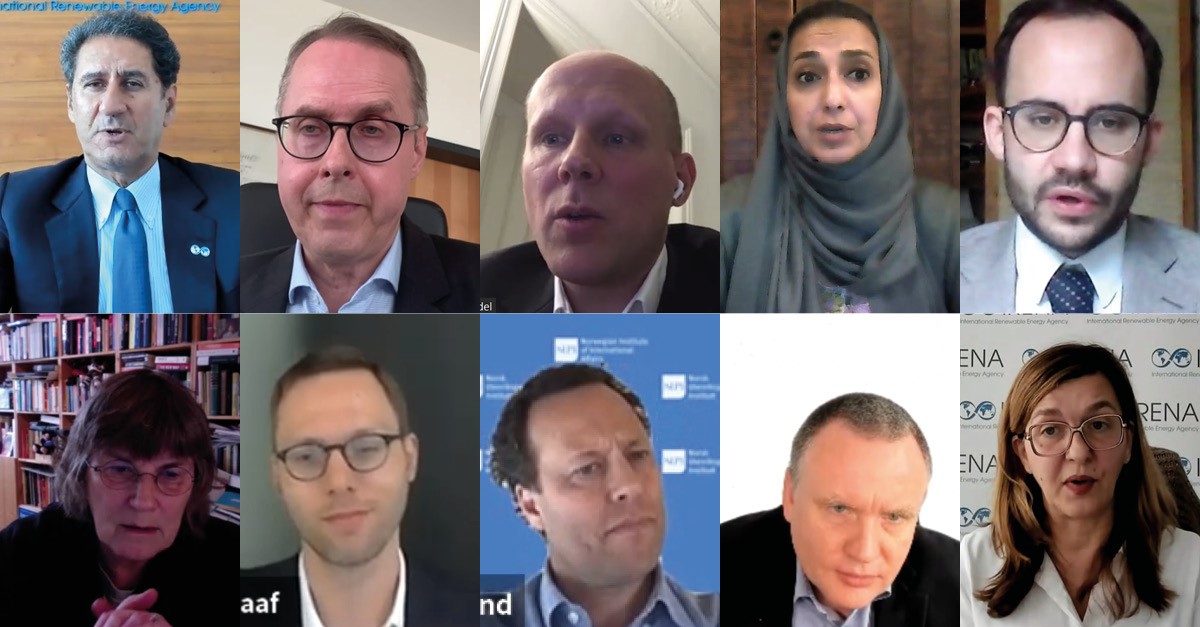
IRENA Director-General, Francesco La Camera underlined the need for an in-depth geopolitical analysis of the energy transition and noted that the importance of the seminal A New World – The Geopolitics of the Energy Transformation report by the Global Commission on the Geopolitics of Energy Transformation. He stressed the fast-changing nature of the transitions, is exemplified by the advent of hydrogen - green hydrogen in particular. This new tradable source of potentially clean fuel brings a new perspective to the role of the energy transition in cooperation between states.
“Just two years after this groundbreaking report, hydrogen is at the forefront of the transition debate,” he said. “We believe green hydrogen will play a significant role in the energy system of the future, particularly in hard to abate sectors. While IRENA’s work acknowledges how difficult it is to predict how events will unfold, green hydrogen is a dynamic sector that requires continued and close discussions. We look forward to tapping a wealth of knowledge and experience to prepare a report on this emerging economy in the context of geopolitics.”
The Agency’s Director of Innovation and Technology, Dolf Gielen framed the future for hydrogen as per IRENA’s World Energy Transitions Outlook preview, saying hydrogen that a 1.5 degree energy pathway will supply 12 per cent of global energy by 2050 – requiring a five-fold increase in production from today’s levels. Although producing it, he said would require “something close to total global electricity capacity today”.
Germany’s Ambassador to the UAE and Permanent Representative to IRENA, Peter Fischer, outlined his country’s strong commitment to hydrogen and noted the importance of understanding how this emerging fuel source may impact geopolitics. “Germany has long considered this subject to be of key importance as we seek to understand the full implications of the energy transformation. There will be risks and opportunities. The question remains, how do we mitigate the risks while taking advantage of the opportunities?”
Dr. Philipp Wendel, Head of Unit, Energy Transition, Economic Department at the German Foreign Office, spoke of Germany’s desire to be climate neutral before 2050, building on the fact that half of Germany’s power needs were met by renewables in 2020. Germany has committed EUR 9 billion to hydrogen development, with the aim of reaching 5GW of green hydrogen production capacity by 2030 and 10GW in 2040.
A recently signed agreement between Germany and Morocco will see the two countries explore new areas of cooperation around hydrogen including the potential for the North African country to become a key hydrogen supplier. Dr Luca Franza, Head of the Energy, Climate and Resources Program at Istituto Affari Internazionali (IAI) stressed that North African hydrogen can be a key enabler of decarbonisation in the Mediterranean and across Europe, and noted the concrete potential for African hydrogen to be cost competitive across the EU.
Dr. Coby van de Linde Director, Clingendael International Energy Programme in the Netherlands underscored that by working together on a coordinated European hydrogen strategy, significant opportunities exist for countries in the region to establish themselves as production hubs. She also highlighted the need to embrace all forms of clean hydrogen. “All forms of clean hydrogen need to be considered. We should all be working towards the same goal, which is to decarbonise the energy system while utilising the very large renewables potential.’’
Dr. Nawal Al Hosany, the UAE’s Permanent Representative to IRENA expressed the UAE’s ambitions to become a reliable exporter of hydrogen, saying the UAE leadership is highly supportive of the hydrogen sector and that more research and development is going into developing green hydrogen infrastructure. She highlighted that the Abu Dhabi hydrogen alliance aims to establish the UAE as a reliable exporter of green hydrogen and use hydrogen to decarbonise heavy industries.
Concluding the discussion, Thjis Van de Graaf, said that while hydrogen is often compared to natural gas, there are important differences that are relevant in the geopolitical context. “Fossil fuel resources are geographically concentrated whereas every country on the planet has the potential to produce hydrogen from renewables,” he said.
“Hydrogen could help pave the way to more symmetrical energy trading relations in the world, create new markets, and in the process redraw the global map of energy trade,” he concluded.



